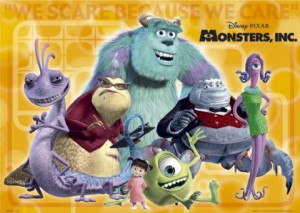5 ½ Reasons Why You Should Include Simulations in Your Hiring and Training Processes
People are your most precious resource. Nobody WANTS to make a mistake in hiring or promotions. When it comes to training Andy Grove, the Intel visionary, said it best, “The most important charge a good manager owns is the responsibility to continuously train his/her employees.”
Below are the 5 ½ reasons why simulations should be an integral part of your hiring, promotion and training processes.
-
The 5 to 1 Ratio
A mis-hire/promote costs the company 5 times the candidate’s annual compensation ($50,000 salary costs the company $250,000).
With training its just as easy to see the ROI. A business parable for you:
CEO said to the CFO ‘We have to train our people to get better.’
CFO says ‘Yea but what if we invest time and money to train them and they leave us to go to our competitor?’
CEO shoots back ‘What if we don’t train them and they stay?’
Whether it is a mis-hire or a less than adequately trained employee the impact on client relations, revenue, productivity, supervision time and morale is negative and it is huge.
-
The Power of Proof
Have you ever had an interview where the person told you they couldn’t do the job? Or have you ever had a person who “stretched” their abilities in the interview and as a result you were cleaning their messes for days, weeks or months after?
A best practice simulation provides you “Point-to-Point Correspondence” with the job. When the activities found in the simulation are a replica of activities that are required on the job, you get an accurate portrayal of skill level.
This is also why simulations are critical to training. Do you really want salespeople “practicing” on customers? Of course you don’t! General George Patton once said “The more my troops sweat in peacetime the less they bleed during combat.” Simulations are a must in all continual development.
-
How do They Handle the Debrief
Once they perform in the simulation how do they respond to constructive criticism? Are they thin-skinned? Do they gloat? Is their self-confidence warranted? Many times, you find out the best and the worst of people by observing how they handle coaching.
It also opens a window to know how they learn best. Through the Debrief you will discover what they will and won’t respond to. This can be invaluable as you continue to train and develop your team.
-
Go to the Video
When recorded, simulations help reduce, if not remove bias and subjectivity in the hiring process in one BIG way, “The eye in the sky does not lie.” You don’t want a he said/she said situation in any business scenario, but especially in simulations.
Here’s a great example of the benefit of recording simulations: A hiring manager who got a ‘good hit’ off a candidate, in an interview, might get a completely different feeling after watching a recorded simulation. The candidate might be the most charming person in the world, but when the time came he didn’t have the skills he trumpeted. In any business, that is a disaster averted.
Recorded simulations are irreplaceable in training as well. There is nothing better than being able to go back and review specific areas for either praise or correction. Plus, reviewing with individuals their recorded progress or regression is a very powerful training tool.
-
Onboarding
Even if somebody is an A-Player it does not mean they are perfect. Too many onboarding programs fail to adapt to the candidate, thus slowing the speed to effectiveness of the new hire.
Simulations don’t just weed out bad candidates. They also help you to assess a good candidate’s specific strengths and weaknesses in a hyper-accurate way. This allows you to design/implement an onboarding process to speed them to productivity. Not to mention it helps in offer decisions like salary negotiations.
5 ½. Positioning Your Company as the Best
The War for Talent is upon us and there are only so many A-Players out there. The mistake most organizations commit is purposefully making the hiring process easier out of fear of losing the candidate.
Thomas Payne said, “What we obtain too cheap, we esteem too lightly: it is dearness only that gives everything its value.” Being with the BEST requires paying the PRICE. Candidates learn respect for the position and respect for the company by demonstrating how seriously the company takes the hiring process. The best  candidates don’t want to be with some company that just rolls over. Remember everybody wants to belong to The Club that is impossible to get in.
candidates don’t want to be with some company that just rolls over. Remember everybody wants to belong to The Club that is impossible to get in.
87% of people who voluntarily (i.e .Quit) leave a company do so because of a lack of growth and development opportunity. Its human nature to want to improve, to develop new skills, succeed and advance. If you have good people, make them better.
Use simulations to continually train and develop your team. And you know what they call the company with the top employees… they call that company the BEST!
To ensure you are hiring A-Players and for training to be impactful and ‘sticky’ both have to be closely tied to how things are actually done in your organization. This is why simulations are such a critical management tool.
The Right Way to Hold People Accountable
Hi Folks. In my previous blog post, I was talking about holding yourself accountable as a leader. Well ‘lo and behold this article pops up in my email box this morning.
It is a great piece on the topic of accountability and the 5 areas where you must BE CLEAR for real accountability to truly exist. I will be continue digging into this topic as it relates to sales leadership and management as January progresses.
Here is an excerpt from the article and the link to the entire article is below.
- Clear expectations. The first step is to be crystal clear about what you expect. This means being clear about the outcome you’re looking for, how you’ll measure success, and how people should go about achieving the objective. It doesn’t all have to come from you. In fact, the more skilled your people are, the more ideas and strategies should be coming from them. Have a genuinely two-way conversation, and before it’s over, ask the other person to summarize the important pieces — the outcome they’re going for, how they are going to achieve it, and how they’ll know whether they’re successful — to make sure you’re ending up on the same page. Writing out a summary is a good idea but doesn’t replace saying it out loud.
- Clear capability. What skills does the person need to meet the expectations? What resources will they need? If the person does not have what’s necessary, can they acquire what’s missing? If so, what’s the plan? If not, you’ll need to delegate to someone else. Otherwise you’re setting them up for failure.

- Clear measurement. Nothing frustrates leaders more than being surprised by failure. Sometimes this surprise is because the person who should be delivering is afraid to ask for help. Sometimes it comes from premature optimism on both sides. Either way, it’s completely avoidable. During the expectations conversation, you should agree on weekly milestones with clear, measurable, objective targets. If any of these targets slip, jump on it immediately. Brainstorm a solution, identify a fix, redesign the schedule, or respond in some other way that gets the person back on track.
- Clear feedback. Honest, open, ongoing feedback is critical. People should know where they stand. If you have clear expectations, capability, and measurement, the feedback can be fact-based and easy to deliver. Is the person delivering on her commitments? Is she working well with the other stakeholders? If she needs to increase her capability, is she on track? The feedback can also go both ways — is there something you can be doing to be more helpful? Give feedback weekly, and remember it’s more important to be helpful than nice.
- Clear consequences. If you’ve been clear in all of the above ways, you can be reasonably sure that you did what’s necessary to support their performance. At this point, you have three choices: repeat, reward, or release. Repeat the steps above if you feel that there is still a lack of clarity in the system. If the person succeeded, you should reward them appropriately (acknowledgement, promotion, etc.). If they have not proven accountable and you are reasonably certain that you followed the steps above, then they are not a good fit for the role, and you should release them from it (change roles, fire them, etc.).
Link to the rest of the article is right here
The Right Way to Hold People Accountable
Everything I Ever Needed to Know About Sales I Learned From the Movies: Monsters, Inc.
3 Sales Management Lessons From
The Power of Practice
We all think we are sooooo great! Just wind us up, do a little preparation and let’s go talk to customers. Well the scary characters in Monsters, Inc. would tell you different. Scaring is critically important in their world because the “screams” that come from the children they scare power their city, lights, heat, cars you name it.
The first scene in the movie shows their training area where they practice “scaring.” They have a replica child’s room complete with a “little boy” robot. One of the “professional scarers” comes out of the closet to scare the little boy and he makes some serious mistakes. It is prime learning time for the all monsters on the team because they video tape the simulations. Now they can go back and coach/correct all the mistakes. It helps the individual monster making the mistakes and all the other monsters on the team.
Sound familiar? Folks you are making a gravely serious mistake if you do not conduct simulations with your team. Make them as real to life as you possibly can. Video tape them so you can document progress or regression. Make the simulations part of your weekly/monthly/quarterly sales meetings. Make them fun, have contests around them. But most of all DO THEM!
You should also practice presentations with every rep individually. Don’t leave anything to chance. Give your rep the best shot possible by running through the discovery/presentation/negotiation with them BEFORE they go to it. George Patton, one of our greatest generals of all time, said “Sure I am tough on them during training! I much rather they sweat with me than bleed on the battle field.” Well, I rather my sales people learn in an office from me so they are prepared to get the sale, than by learning a lesson with a client and losing the sale.
The Power of Naming
About half-way through the movie there is a scene where the two main characters, Sully and Mike, are trying to send home the little girl who snuck into the Monster’s world. They are arguing about how to do it when Sully says that he has named her “Boo.” Well Mike is just livid at this development and he says, in a very angry voice, “You named it? You can’t name it; once you name it you get attached to it.” Exactly, once we take the time and effort to name something we begin to place value on that something. It is the reason why I tell all my clients that they should name their proposals.
What is special about an ‘Investment Analysis for ABC Company’ or what about ‘A Proposal for Electronic Payment Services Prepared by Joe Smith Company’? Answer: NOTHING. Both sound as generic as the proposal inside, I would wager. That is why I am amazed when sales management does not make formally naming proposals an air tight rule for every proposal that goes out the door.
The proposal is supposed to be a professional selling document not a glorified descriptive invoice. NAME YOUR PROPOSAL based on what the prospect wants as a RESULT of buying your products and services. A couple of examples I have used:
- “How to Improve your Sales Team While Increasing Sales Revenue”
- “Increase the Productivity of your Customer Service Team and Watch your Sales Soar”
- “Creating a Lead Generation System that Produces an Ongoing Stream of Quality, Qualified Leads”
Each one of the above Proposal Names tell the prospect EXACTLY what to expect from reading the proposal but more importantly each name tells THE VALUE that comes from implementing what is inside the proposal.
The Power of Laughter
Remember when I told you that a child’s scream was the source for power in Monster City? Well by the end of the movie Sully and Mike learn that laughter is 10 times more powerful than a scream so they completely re-engineer Monsters, Inc. Now each monster who visits a child’s room has to make the children laugh instead of scream and the result is a record breaking year for energy production.
Managers, find a way to make sales fun for your team. Have contests, pit individuals against each other, get your team to volunteer for community events or hold them yourself and ALWAYS celebrate victories with your team. Take them out for cocktails or dinner or both, take them bowling, take them to an amusement park, it doesn’t matter what you do, the effort here COUNTS, but try to have fun with your team.
I know you need to maintain a certain professional distance from the team. If you get too close it can cloud your judgment or worse cost you a great sales person or a big sale. I am also aware there is always going to be the need to be tough with your team. There will also always be the need to place corrective actions on 1 or more members of your team. That’s fine just don’t let your managerial brio get in the way of having your team enjoy themselves.
Remember laughter is 10 times more powerful than screams keep that ratio in mind and you will be amazed at the results.
Choking HAPPENS
Why do athletic teams practice?
Why do even the most advanced athletes practice the basics over and over?
Why do they review game flims/videos before, during and after an athletic contest?
The answer to the above questions is simple. They do so because they want responses to situations to be essentially automatic. If you can remove the ‘what should I do?’ thought and instead allow the best and brightest to simply react using their God given abilities you have the chance to see real success in athletics. It’s not complicated, you don’t practice and the probability you will ‘choke’ in an unfamiliar situation is VERY HIGH.
It is the same in sales. You have to practice your craft to become the best and also so you can recognize situations and know immediately what the solution to them is. If you can eliminate the ‘I wasn’t expecting that’ commentary, which is another way of saying ‘I choked,’ I promise you will see sales increase.
Now I know some sales people will say ‘I get enough practice in front of my customers’. But think about it for a moment, is that where you really want to practice? What happens if what you try doesn’t work? Whoops, you just lost the sale; and that is the minimum that could go wrong.
The repetition of successful performance results in the “Video Game Effect.” We all know the basic concept of video games. Each level of the game has a ‘boss’ you have to defeat. After learning the needed skills and defeating him you move on to the next level, and so on and so on. Through practice and repetition you improve and have more success in the game. The better you get the more you enjoy the game. The world of sales is no different except that the better we get not only do we enjoy our work more but we make MORE MONEY!
There is science to this as well. When confronted with a scenario you have prepared for, the body will produce a neuro-transmitter called Serotonin. Its main job is to induce a calming effect allowing higher level critical thinking to happen at a much quicker pace. The result is better decisions and actions that dictate performance. Once you start to succeed at the task, the body produces Endorphins which creates the euphoric feeling coming after you have performed at a high level or won a contest. Thus, you become conditioned to want the same feeling over and over which propagates continued performance improvement. You might call it “Addiction to Success.”
Sales managers I strongly urge you to start a regimen of sales simulations with your team. You should have each member of the team submit a situation where they either lost the sale or didn’t move the process forward on a monthly basis. Also, build up your “Catalog” through your experience in the field riding with your team. Turn those actual events into simulations and before you know you will have a docket of potential selling scenarios that you can use to help develop your team and reduce the “Choking Happens Syndrome.”
Last thing; always do a post mortem, an evaluation on both live events and the simulations. Make sure your team knows what they did right, what they could do better and what they better not do EVER again. Eliminate the ‘what if’ from you and your team’s vocabulary and watch the sales numbers soar.
Hiring A Sales Superstar: The Simulation Critique
 “The unexamined life is not worth living” – Socrates
“The unexamined life is not worth living” – Socrates
Okay, you conduct the simulation, video tape it and have your results all laid out. Now, you have to relay the results to the candidate. You may think you have learned everything there is to know because of the thoroughness of the simulation but you haven’t.
Our friend “Gauge” tells us how the candidate accepts your critique should be a crucial factor in your overall decision.
Now a short course on how to relay critique. The better the simulation the harsher the critique, the worse the simulation the more gentle. In both cases you MUST relay the facts it is just the manner that will change.
If they did a great job but are thin skinned during the critique that should tell you that they may not take criticism well much less be able to handle adversity. Or as Alec Baldwin said in Glen Garry Glenn Ross “if you can’t take what I am saying to you how are you going to take the abuse you get on a sit?” People who perform well need a more tougher approach because you don’t want some talented prima donna who can’t take coaching. They tend to be complainers and could undermine authority and teamwork.
If they did a poor job but take the criticism well or ask for a second chance to fix their mistakes and put your suggestions in action that should tell you about their resilience. I want somebody with the attitude to try until they get it right. You may be softer in your approach but nobody likes a bad review. If they crumble well… If they are made of sterner stuff they you’ll know by their response.
 These examples are the extremes. Your critiques will vary of course as will how you handle them, always based on the individual. What is important is learning more about the candidate and their viability for your position while determining the direction of the interview process.
These examples are the extremes. Your critiques will vary of course as will how you handle them, always based on the individual. What is important is learning more about the candidate and their viability for your position while determining the direction of the interview process.
Check back for my for my next post on Hiring a Sales Superstar!
And remember “You can either make sales or make excuses but you can’t do both!”
[button link=”http://twitter.com/Sales_Impact” color=”lightblue”]FOLLOW ME ON TWITTER[/button]
Hiring A Sales Superstar: Constructing & Conducting a Sales Simulation
John C. KolencikWhen I was a kid and would get into trouble almost always my parents would find out. The next 20 minutes, after their discovery, I would spend apologizing, trying to avoid the inevitable punishment that was coming. That’s when my parents came right back everytime and said “John Christopher Kolencik your actions speak louder than your words” emphasis THEIRS!Why do we take a candidate’s word for it when they say that they can sell? Oh, right it says they can on their resume’. Yea, and their references said they can too. Well I have waited a long time to say this instead of hearing it “your actions speak louder than words”.
Sales simulations are a KEY tool in discovering the actual skill level of any potential sales hires. Think about it, what tells you more about a person besides how they actually react in a particular situation? And the beauty of the sales simulation is that you can construct it EXACTLY to the experiences you have everyday.
There are a 1o steps that must be adhered to so the simulation will yield the results and information you need to help in your hiring selection. I will detail 9 of them today and the 10th will be in my next post.
- Give the candidate access to any advice or resources that a currently employed sales person would have but don’t prompt them to specifics. If they ask great but if they don’t, well that tells you something right there doesn’t it?
- Make sure that the simulation is based in your everyday reality. Harder is better than easier but straying to either extreme garners you nothing but wasted time.
- Each step in YOUR actual sales process should be simulated, no short cuts!
- Detail out, internally, how you define success in the simulation. This gives you an un-biased road map to grade/assess the candidate.
- There should be multiple “actors” in any simulation. When was the last time you were involved in a sale that didn’t have multpile parties involved?
- Write defined roles and direction for the “actors”, don’t rely on their “acting chops”. This removes any bias or random mistakes.
- Include “planned interruptions” during the course of the simulation. What sale have you been a part of where your meetings were never interrupted?
- Always include a letter/proposal writing segment in any simulation. What a deflation it is to find your new star sales hire “don’t write too good”.
- Record it, minimum audio but preferably video. See my last post as to why.
- Conduct a Critique Session.
That’s it for today. If you have any questions or need any help constructing/conducting a Sales Simulation give me a call at 216-347-6729. Make sure to check back for my next post where I detail out Number 11; How to conduct an effective Critique Session. And believe you me if you thought the Simulation was an eye-opener just wait to see what you will learn by critiquing your candidate’s performance.
Hiring A Sales Superstar: 1st Interview Questions
“Nothing splendid has ever been achieved except by those who dared believe that something inside themselves was superior to circumstance” Bruce Barton
First let me introduce you to Gauge, he is a member of the BPL: The Best Practice League. His specialty is the hiring and assessment process and he helps us to remember just how important it is to not only ask the right questions but to ask them the right way.
Okay, I promised you the questions to use for a first interview. So below is the link to the document with the questions. But before we get to them, let’s talk about “HOW” to conduct a first in-person interview.
Remember this is an interview not a date. Don’t get swept up in the style of the moment. You are looking for answers that contain facts and figures. The best salespeople know how to make a compelling point . They know how to paint a picture evoking emotion with their words. They also know how to give specifics, facts and details. The less specific an answer is the quicker your @#$%^ detector should be going off.
Make sure you are very clear upfront about what you want from them. You want this to be conversational but you are looking for answers to these questions. If they don’t get to the point don’t let them off the hook. Keep after them a maximum of 3 times on any one question. If they have not answered the question to your satisfaction after 3 tries move on but make sure to notate the miss.
Finally, ALWAYS record your interviews. This kills 3 birds with the proverbial 1 stone. 1) you don’t have to trust your memory or your notes 2) upon reflection you may hear something for better or worse that you missed on the first pass 3) legal protection. Remember, you do have to tell them they will be recorded.
Please feel free to give me a call 216 347 6729 and we can talk through any questions you may have and in the meantime make sure you go to my websites by clicking in the links to the right.
Make sure to check back for the next post when we discuss how to conduct a Sales Simulation and conduct a Critique Session that will give you more insight into a sales hire than you ever thought possible.
Here are your 1st Interview Questions…
1st%20Interview%20Questions%20Rev.%201.doc
Archives
- May 2018
- November 2016
- June 2016
- April 2016
- March 2016
- February 2016
- January 2016
- February 2012
- January 2012
- December 2011
- October 2011
- August 2011
- July 2011
- June 2011
- May 2011
- April 2011
- March 2011
- February 2011
- July 2009
- June 2009
- May 2009
- August 2008
- June 2008
- May 2008
- April 2008
Categories
- A-Players
- Best Practice
- Change
- Cold Call
- Communication Skills
- Continual Development
- Critique Session
- Customer
- D.I.G.
- Drive
- Firing
- Guts
- Handling criticism
- Hiring and Assessment
- Hiring Dashboard
- Human Resources
- Intelligence
- interview questions
- Interviewing
- interviewing sales superstars
- Lead Generation
- Leads
- Motivation
- Naturally Curious
- New Contact Touches
- Position Contracts
- Proposals That Sell
- Prospects
- Reference Checks
- S.I.T. Blitz
- S.I.T. Nurture Prospecting System
- S.I.T. Touch
- Sales 3.0
- Sales Blitz
- Sales Management
- Sales Superstars
- Simulations
- Skill Sets
- Staffing
- Suspect/Prospect/ Customer Dynamic
- Suspects
- Talent and Traits
- Termination
- Uncategorized









